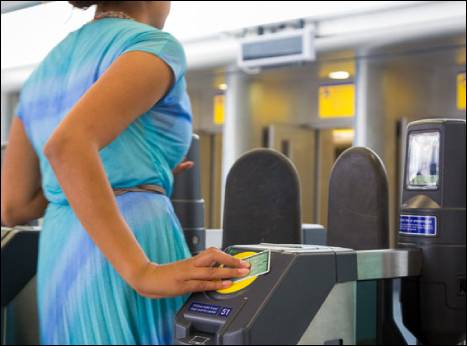
June 18 2021: Smart ticketing is a system in which a travel ticket is stored electronically in a microchip which is implanted in a smartcard.
Passengers use this smartcard to travel via buses, trains, trams, and metros without standing in a queue for purchasing a paper ticket.
Eliminating the need of paying for travel journeys with cash is hygienic as well as helping to safeguard passengers and drivers from deadly diseases.
There was an upsurge in the smart ticketing trend during the COVID-19 pandemic, says a May 24 2021 report in Travel News Daily – which is proof enough of its efficacy.
This system is a paper-free solution and hence makes it easier for the passengers to maintain it.
Adds Travel News Daily: The smart ticketing scheme also offers train and bus companies the ability of launching tailored services and personalized customer information, helping the industry in adapting to changes in the commuting pattern. A smart ticketing card can be tracked from creation through use, indicating that more flexible products can be provided like off-peak travel discounts, pay-as-you-go, and flexi-season tickets.
Global market
The global smart ticketing market is estimated to grow at a CAGR of 8%. It is expected to reach approximately US$ 11 billion by the end of 2023, suggests a February 2021 report from the Pune-based Market Research Future.
It lists the key international players in smart ticketing technology: Gemalto NV (Netherlands), HID (U.S.), Giesecke & Devrient GmbH (Germany), NXP Semiconductors (U.S.), Inside Secure (France), Infineon Technologies AG (Germany), Confidex Ltd. (Finland), Xerox Corporation (U.S.), ASK (France), and Cubic Corporation (U.S.).
Another study by Global Market Insights, Inc., suggests that the Smart Ticketing market demand may hit US$ 20 Billion by 2026.
While the bulk of global tourism is airline based – and currently smart flight ticketing is not yet a reality -- bus and rail travel may yet find in smart ticketing, a technology to allay the fears of passengers in the months to come, as they resume leisure travel.